2024 Pinch Literary Awards Announcement
We’re excited to announce the results of The 2024 Pinch Literary Awards! We are grateful to Anna Rose Welch & Lara Ehrlich for judging poetry & fiction respectively.
POETRY
1st place: “Two Truths & A Meatball” by Joshua Martin
What our judge said: It’s not just the speaker’s inbox that stirs “like a Stephen King graveyard;” this entire poem surprises with its assemblage of horror stories which starts out almost comical but grows increasingly malignant, as if with each sentence we’re witnessing a hand reaching up from a grave before us. I was transfixed by this poet’s language — the unrelenting specificity of each detail beginning with the deluge of far-from-banal (but yet entirely familiar) student excuses spiraling down to the more globally understood traumas: a miner’s “lungs blacker than roadside licorice;” the classroom become a “killing field of smartboards;” “the round-riddled truth itself” of yet another senseless school shooting. But for as much as this poem can startle on its rapid descent down the page, we find ourselves equally lulled into submission, ensnared by the speaker’s repeated pleas of “let me be” until we, too, are no longer inhabitants of the “distant Kingdom of the Stunned.” By the culmination of this poem, the speaker’s prayer has become one we all know and could recite reflexively — albeit exhaustedly — by heart. The second I finished this poem, I knew I’d found our winner.
2nd place: “The Wedding Ring” by Lynne Schmidt
What our judge said: This poem takes no prisoners. Starting with its simple but still striking first line, we are struck dumb by the reality of this narrator’s situation: the discomfort of “not wanting to touch her once all the warmth is gone,” of worrying “they will have to break her fingers to get the rings off.” However, what is most haunting is not the emotional heft of what is conveyed here — though that is, of course, significant. Rather, it’s this poet’s use of plain, unflinching language that leaves no room for interpretation; of their reliance on matter-of-fact sentences that are contained neatly in their tercets the way a mind numbed by shock might move systematically, unhurriedly from one brief thought to the next. (That the poem ends on a broken tercet we can only make whole again by going back to the poem’s opening single line, is an intriguing stylistic decision, underscoring the circularity of grief and the wedding ring the narrator cannot remove but encounters everywhere.) In its controlled way, this striking poem speaks to the universality of grief, the haunt of it becoming quotidian.
3rd place: “Breakfast” by Shira Haus
What our judge said: “I loved this poem for its elusiveness. Just as this narrator is confronted by their inability to “give the morning what it wants,” so, too, we as readers are held at bay, left desiring. There’s a beautiful balance in this poem between mystery and honesty, between the speaker’s desire to control — to “try not to twist the neck of a soft animal”—and the desire to give in, to be something and someone else, to be better. We teeter on the edge of madness throughout these staggered tercets as if in the very act of reading, we are like the morning asking for more than the narrator can give us, pushing them to change the terms and conditions, to prove themselves. By the time we get to the ending the feeling of resignation is palpable, not only in that final line, but in the cascade of water imagery, “the river asking for more restless bodies,” and in that final act of pouring a glass of water, the narrator finally giving in.”
FICTION
1st place: “Why the News is Bad for You” by Cameron Green
What our judge said: “Why the News is Bad for You” commands the reader’s attention from the first headline. Structured as vignettes with news headlines, the story compels us to pay as much attention to the silences between sections as to the prose and won’t let us look away. We bear witness to impressions of loss--loss of love, of trust, of life, of faith--as the narrator navigates a world hostile to his identity. Every word of this story is a gunshot.
2nd place: “Deerstomp” by Lena Fultz
What our judge said: What begins as an unsettling mystery simmering with violence unfolds into a tragedy the young protagonist struggles to grasp fully. Through brutal but tender prose, the author forces us to confront a family’s very public nightmare.
3rd place: “The Death Trick” by Sarah Bourdreau
What our judge said: “The Death Trick” is weird in the best possible way. Resurrection, clamming, chickens, and witchcraft mix in this singular story about grief that clings to the edges of our lives long after we believe we’ve left it behind.
Poetry Finalists:
● “Love’s the Burning Boy” - Jessica Hincapie
● “Broken Pantoum Reaching for Trans Joy” - Rae Whitfield
● “La Chanson des Coyotes (or, I Took Four Years of French in High School, But Spent Half the Time Playing Hooky & Frenching You)” - Tiffany Promise
● “The Loaded Gun (No. 2) - Rosa Lane
● “Love Poem for the Man I Think My Father Would Have Wanted Me to Marry” - Emma Jones
● “Confessions of an avocado lover” - stacey forbes
● “Hawk Heat Black Man” - Oak Morse
Fiction Finalists:
● “All the Kids are in Therapy” - Jen McConnell
● “Crow” - Rebecca Kilroy
● “Ding, Ding !” - Susan Levine
● “Karantina” - Hasan Dudar
● “Xmas Weather” - Sera Gamble
● “Perturbation” - Lynn Thorsen Jensen
● “Sister Water” - Sophia Ross
Congrats to all our finalists & a huge thank you to our judges!
